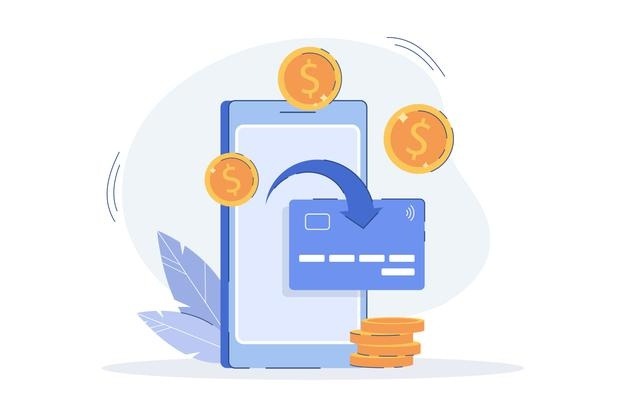6 Questions to Ask When Choosing an Online Payment Gateway
Choosing the right online payment gateway is similar to selecting a life partner: one should have some special characteristics that you value, but in the end, it all comes down to how special they make you feel and what your inner voice tells you about your choice! It takes time to get things done correctly in any relationship.

"Falling in love" with and selecting the right payment provider for your online business can have a significant impact on your revenues, conversions, and user satisfaction. It has the potential to fundamentally alter your life – specifically, your business life.
You can fall into one of two categories: you are doing it for the first time in your life, which means you are a startup, or you have some experience with online payments but it has not been a positive experience. As a result, you decided to shop around.
Both situations provide compelling reasons to begin. Being dissatisfied is the first step toward finding a new payment processor. Flaws in your current provider, such as poor customer service, may also be sufficient reason to begin your search for a new provider. Having a list of things you don't want based on previous experience can help you narrow down your search and eliminate suppliers who provide similar sloppy service or lack features you seek.
There are plenty of fish in the sea
Because there are so many card processing companies offering various services, you will have no trouble finding one that is perfect for you.
Define your company's requirements. Define the markets that you want to reach with your product. Consider your incorporation location because it will either allow you to work with some providers or will prevent you from doing so due to card association rules and banking laws. Consider your business model and product/service, as these will influence the type of processor you seek and the functionalities it must provide to support exactly what you want to set up. Do you want more control over your payments, or do you want someone else to handle that for you?
As with any business, there are some pitfalls to avoid and things to look out for to ensure that your search for the right payment partner pays off.
Here is a small list of things you DO NOT want:
1. Inflexibility in the setup
2. Lack of transparency
3. Long and complicated technical integration process
4. Long merchant account application process
5. Sloppy support
6. Hidden fees
Conducting due diligence on your own will undoubtedly benefit you. Your ultimate goal should be to find a hassle-free best payment gateway that supports your business model, product, or service by allowing you to create any payment scenario you want in the simplest, fastest, and friendliest way possible.

What inquiries should you make of a potential payment provider?
1. Flexibility
Everyone seems to be talking about it these days, but only a few seem to understand it well enough to deliver it. Can your payment gateway adapt to your company's specific needs? Will they be able to learn your programming language? Do they process globally in all of the currencies you require for your business? The platform should enable you to develop any business model and payment scenario you can think of. Furthermore, the possibilities for integration should be limitless.
Confirm the duration of the application process before beginning the collaboration. Compliance can take some time, so ask your new gateway how long it will take to get your new merchant account and begin processing transactions.
It all comes down to a solid API, which is the beating heart of any online payment gateway. Because it is something they are very proud of, great APIs of good providers are usually displayed right on their website.
2. Processing options
The appearance of a payment form can influence not only your conversion rate but also whether or not your buyers trust you.
Check to see if the provider provides an embedded custom form to keep your users on your website at all times (no-redirection to other parties' websites results in significantly higher conversion).
A simple but beautiful checkout option will not only have a significant impact on the user experience but will also simplify the entire user flow and make payments quick and easy (a simple and perfect solution for one-time and recurring payments).
Innovative payment providers will provide you with a plethora of additional features aimed at increasing your sales and profits.
3. Technical integration
The best word to describe how the integration should be done is "hassle-free." That can be translated as quick, simple, and simple to implement not only by a developer but also by a regular business owner. With a few clicks and adjustments, you'll be up and running in minutes. It doesn't get any easier than this.
Inquire about the available options and technical documentation. Long and difficult integration processes can last weeks and cost you money and time. The best payment providers should provide a set of APIs that allow you to integrate in a matter of hours with just a few lines of code.
4. Fees
In the case of payment processing, this is not the case. You MUST be aware of the entire fee structure ahead of time. Furthermore, you must comprehend it. Having said that, fees must be simple and straightforward.
When it comes to your money, there should be no room for surprises or a lack of trust.
When you see very competitive fees on paper, you may get excited and believe that is how much you will end up paying. Regrettably, some payment gateways charge extra fees for specific services, or the displayed fees are only available if certain conditions are met (local traffic, the minimum volume required, or refer to just one currency).
Make certain that there are no hidden fees and that the pricing policy is clear. Before you make an effort to integrate the entire system, make sure that everything is confirmed. Inquire, inquire, inquire, inquire, inquire, inquire, inquire, inquire, inquire, inquire, inquire To avoid unpleasant surprises such as paying twice the actual price, request that the provider list all of the costs that you may incur while using their service. This could imply that your current product pricing model is no longer profitable.
Request a breakdown of all payment processing fees:
set up fee,
monthly fee,
registration fee,
processing fee,
transaction fee (successful and declined),
refund fee,
chargeback fee,
reserve
and any other fees you may be subjected to, based on some scenarios.
Also, make certain that you are paid as soon as possible. Because your cash flow is critical, there is no reason why you should not be paid weekly with only a few days delay where money travels from one account to the other. Check the payout schedule and make sure it corresponds to yours when it comes to paying your suppliers. The last thing you want is a cash flow gap and complaints from your business partners or suppliers.
5. Security
Digital security is not only a hot topic these days, but it is also an absolute necessity in the case of online payments. Inquire with your payment provider about data encryption, VeriSign SSL certificates, CVV2 verification, and any other encryption algorithms that ensure your customers' data security.
It's not just about the security of your merchant account; it's also about the security of your customers and their financial information.
Token technology can add an extra layer of security. Tokens are used to replace credit card digits with a string of meaningless numbers, making them unusable by any fraudster trying to fish for them after hacking your system. This technology can save you a lot of time and keep your loyal customers safe from card fraud.
Check with the gateway provider to see if they offer fraud protection. They should provide an anti-fraud system as well as active chargeback management.
Check with your payment provider to see if they meet the most stringent security requirements, known as PCI Level 1. That confirms that not only is the platform's technology secure, but so is the entire organization behind it, with people who are fully aware of the risk factors associated with payment processing and are prepared to act quickly due to proper procedures in place to prevent misconduct from occurring.
6. Customer support
Do you remember that annoying feeling when you went to your Internet banking and wanted to talk to someone but instead got an automatic response system or a FAQ with a loop and ended up being upset, lost, and wasting time? Yeah. That is not what you want.
When automation works well, is simple, and user-friendly, it is fantastic.
Payment processing is critical in any e-commerce business, so the response must be quick and all issues must be resolved immediately. Make sure you know what kind of service you'll need – it's not always necessary to have 24/7 support, and the more service options you have, the more expensive the gateway.
What you definitely want to know is where to turn for assistance or support. You should not have to wait 24 or 48 hours for a response. The best online payment gateway will assign you an account manager who will be available to you not only when the sun shines, but also when it rains.
And this is the distinction between a payment PROVIDER and a payment PARTNER.
Post Your Ad Here
Comments